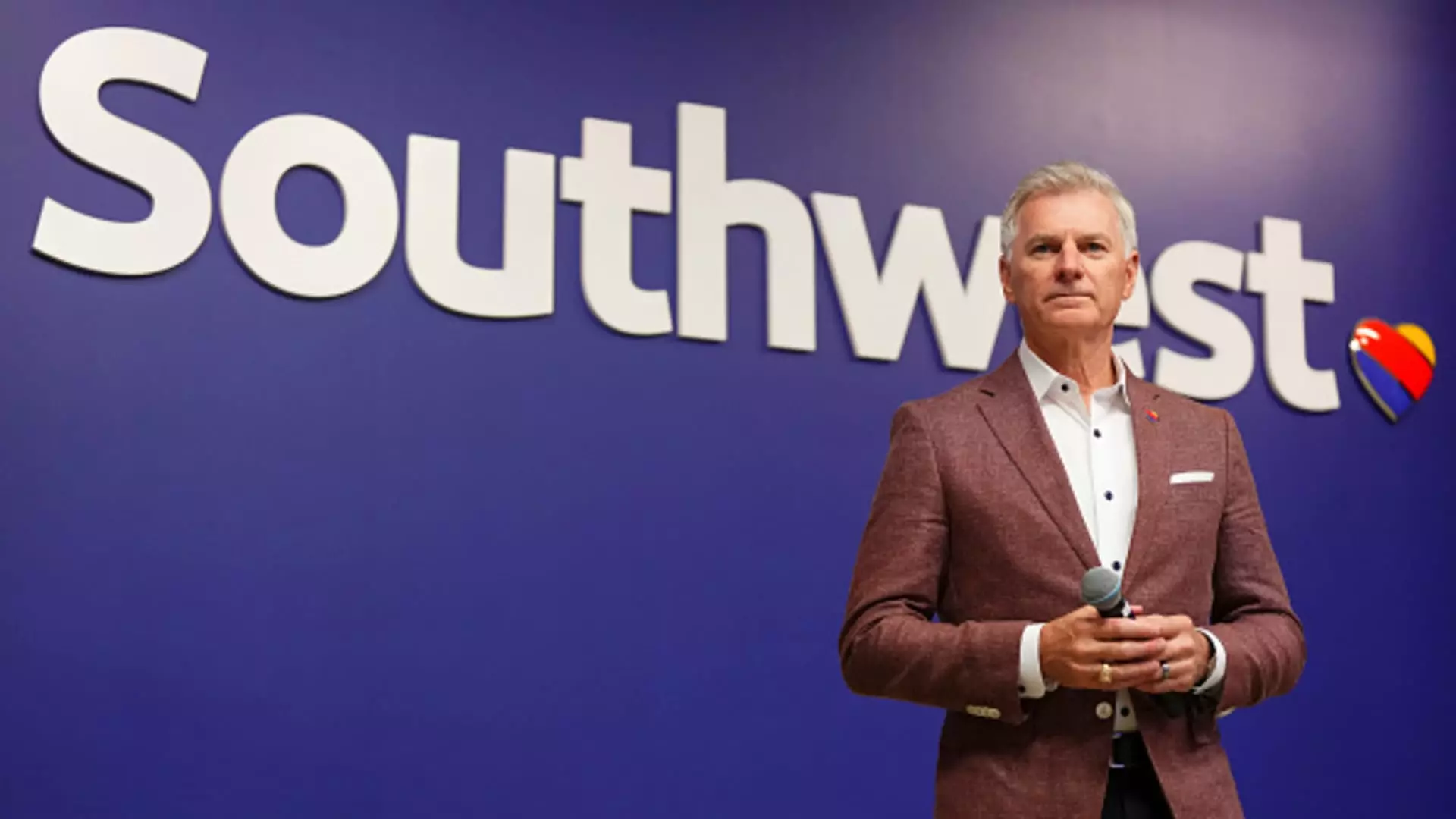In a notable turnaround for Southwest Airlines, the airline has entered into a strategic agreement with activist hedge fund Elliott Investment Management. This deal serves as a resolution to avert an anticipated proxy battle over board control and marks a pivotal moment in the airline’s governance. Under the terms of the agreement, Southwest will expand its board by including six new directors, while also facilitating an earlier-than-scheduled retirement for Executive Chairman Gary Kelly. Concurrently, Southwest’s CEO, Bob Jordan, retains his position, heralding a cautious approach to leadership transitions during a time of potential upheaval.
The involvement of Elliott Investment Management is a testament to ongoing pressures within corporate governance, particularly in industries, like aviation, that are still recovering from the economic impacts of a global pandemic. The agreement underscores the importance of shareholder activism in shaping strategic corporate directions. Elliott’s push for board representation underscores their commitment to reinvigorating the company’s strategic approaches to profitability and operational efficiency, areas where critics have suggested Southwest has lagged.
Elliott’s nominees, which include five representatives along with former Chevron CFO Pierre Breber, are intended to bring fresh perspectives and new strategies to the airline’s operations. The expanded board will now comprise 13 members, slightly above the previous structure of 12 after earlier adjustments had aimed at reducing board size. This initiative reflects a growing trend in corporate governance towards restructuring boards to bring in diverse experiences and viewpoints, particularly during periods of financial recovery and strategic reorientation.
The majority of Elliott’s nominees are expected to challenge existing strategies, especially in regard to sales and profit-boosting measures that have seen Southwest trailing competitors like Delta Air Lines. The airline’s history of minimal adaptation over its five-decade operation could need a departure from established practices, particularly concerning operational efficiency and customer service offerings. As part of the agreement, the Southwest board has committed to appointing a new chairman to succeed Kelly, which is crucial as the company seeks to adapt its strategies to meet emerging market conditions.
In light of recent developments, Southwest Airlines’ stock has demonstrated a lackluster performance, rising by less than 1% this year compared to a significant uptick of 21% in the S&P 500. This discrepancy presents a pressing concern for shareholders, emphasizing the need for decisive action in boosting revenue and market performance. As a result, the airline has begun aggressive measures to reduce unprofitable routes and maximize operational efficiencies. Recent announcements, including a $2.5 billion share buyback program, further illustrate a commitment to enhancing shareholder value.
The airline’s third-quarter earnings report showcased a profit that surpassed analyst forecasts. However, despite this positive news, shares plummeted approximately 6% in midday trading, pointing to an underlying skepticism among investors regarding sustainable growth. The focus on revenue initiatives and the commitment to increasing earnings before interest and taxes by $4 billion in 2027 signal a more ambitious approach to financial health.
As Gary Kelly prepares to step back from his longstanding leadership role, both Kelly and Jordan face critical scrutiny regarding their ability to lead the airline effectively through its next phase of transformation. Their tenure, which spans over three decades, is marked by a unique corporate culture that may resist change but is now under significant pressure to adapt. Notably, this agreement marks one of the most extensive board changes initiated by Elliott Management in a U.S. corporate battle, suggesting that the influence of activist investors is profound and potentially transformative.
In a statement reflecting on the agreement, Kelly expressed confidence in the future trajectory under Bob Jordan’s leadership in collaboration with the refreshed board. As the new members integrate their strategies and perspectives, all eyes will be on Southwest Airlines to determine if they can effectively leverage these changes to reclaim their competitive edge in the airline industry. The coming months will be vital as the airline navigates this shift in governance and seeks to revitalize its brand amidst a challenging operating environment.

Leave a Reply